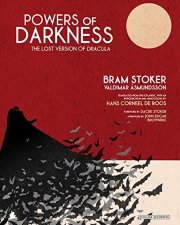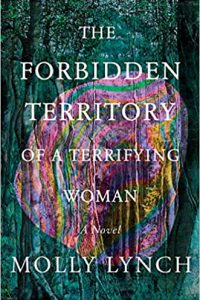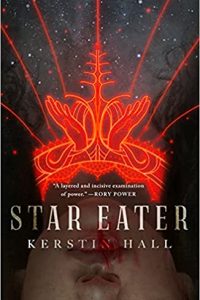Ian Mond Reviews Bang Bang Bodhisattva by Aubrey Wood
 Bang Bang Bodhisattva, Aubrey Wood (Solaris 978-1-78618-701-7, $26.99, 390pp, hc) May 2023.
Bang Bang Bodhisattva, Aubrey Wood (Solaris 978-1-78618-701-7, $26.99, 390pp, hc) May 2023.
I don’t think it’s controversial to say that cyberpunk, starting with William Gibson’s Neuromancer, borrowed heavily from noir fiction: the disaffected outsider, the grimy, downbeat urban setting, the pessimistic view of human nature. An article by Danny Bowes published on Tor.com more than a decade ago even draws a textual line between Chandler and Gibson, framing cyberpunk as one of ‘‘noir’s most prominent descendants.’’ In her energetic debut novel Bang Bang Bodhisattva, Aubrey Wood not only acknowledges cyberpunk’s noirish antecedent, but in the form of her two protagonists, Kiera Umehara and Angel Herrera, she makes literal the parent/child relationship between the two modes. Kiera, a transwoman, is a hacker selling her services via the gig economy. One of her customers is Angel, a private investigator cosplaying as Philip Marlowe (trenchcoat and all), who has an aversion to anything technical. The analogue/digital divide between Kiera and Angel, mimicking the generational split between noir and cyberpunk, is one of the many fascinating authorial choices that makes Bang Bang Bodhisattva such a chewy read.
The novel takes place in New Carson, a town in California so ‘‘goddamn dirty they renamed it after its godfather.’’ The year is 2032, except, as we come to realise, it’s not our 2032. If you squint, you could almost believe that the extensive body modifications, especially the optical lenses everyone seems to wear, might be possible in less than a decade. But once an android enters the novel, we know this isn’t our future. This is despite Wood saturating the narrative with familiar pop culture references – everything from Mortal Kombat to The Good Place. Many of the references are deliberately nostalgic and potentially occur before our and Wood’s timelines diverge. The mix of the contemporary and the accelerated does, to start with, discombobulate. Suitably it reminded me of my teenage reaction to Neuromancer, a novel that Wood hat-tips several times, including a riff on its opening line (‘‘The strip of sky above was the black of a switched-off monitor’’), which bewildered me with its neologisms and portmanteaus. The effect isn’t entirely the same with Bang Bang Bodhisattva – hard to compare anything with a book as groundbreaking as Neuromancer – but I love Wood’s willingness to upset the reader’s equilibrium.
As intellectually satisfying as Bang Bang Bodhisattva is, it’s the two leads who make the novel such a joy to read. They are the quintessential odd couple: Kiera embraces tech, Angel gives it the side-eye. Initially, this is fine because their relationship is purely transactional. But after Angel nearly gets Kiera killed – barely escaping a seedy nightclub after taking compromising pictures of a client’s husband – she swears never again to accept a job from the shabby PI. Then Kiera and her polycule are threatened with eviction after their social status drops. Urgently needing to raise money, Kiera agrees to assist Angel with his latest case, which in classic noir style, involves Angel’s ex-wife, Glory, playing the role of femme fatale, searching for her missing husband, Malcolm Hobbes. Angel and Malcolm go way back. They were partners on the New Carson Police Force and close friends until Malcolm had an affair with Glory. Coincidentally, Malcolm, now a lawyer, provides Kiera with pro bono advice, such as changing her legal name. She has no idea, though, that Angel is searching for Malcolm until they break into an apartment and find the lawyer ‘‘spread-eagle across the bed, mouth open, staring up at nothing.’’ The only evidence left by the killer is a smoking stick of nag champa. Things go from awful to catastrophic when the New Carson Police, led by the oily Detective Flynn, pin Malcolm’s murder on Angel and Kiera. Throughout this unfolding plot, which thickens appreciably as the body count grows and Kiera’s love interest is kidnapped, the relationship between Angel and Kiera deepens. Their banter remains spiky, but they’re never hateful or adversarial. They are faithful to each other and their authentic selves.
But then, being your authentic self is very much the novel’s central theme. It’s reflected in the title – in the book, a Bodhisattva is someone on the path towards spiritual awakening – and is chief to the plot (I’m treading carefully around spoilers). It’s also evident in Kiera’s experience as a transwoman in a society that rejects her identity. I winced each time Detective Flynn deadnames Kiera (he says it’s because she hasn’t changed her legal name, but we know it runs deeper than that) and was sickened when Flynn and his colleagues strive to dehumanise Kiera, to rob her of her identity after she and Angel are caught and imprisoned. And yet, for all the cruelty she experiences, Kiera is always true to who she is: she is always Kiera.
Bang Bang Bodhisattva not only brings to the fore cyberpunk’s noir antecedents, it also teases out themes around gender fluidity and identity with an abundance of intelligence, style and heart.
Ian Mond loves to talk about books. For eight years he co-hosted a book podcast, The Writer and the Critic, with Kirstyn McDermott. Recently he has revived his blog, The Hysterical Hamster, and is again posting mostly vulgar reviews on an eclectic range of literary and genre novels. You can also follow Ian on Twitter (@Mondyboy) or contact him at mondyboy74@gmail.com.
This review and more like it in the July 2023 issue of Locus.
 While you are here, please take a moment to support Locus with a one-time or recurring donation. We rely on reader donations to keep the magazine and site going, and would like to keep the site paywall free, but WE NEED YOUR FINANCIAL SUPPORT to continue quality coverage of the science fiction and fantasy field.
While you are here, please take a moment to support Locus with a one-time or recurring donation. We rely on reader donations to keep the magazine and site going, and would like to keep the site paywall free, but WE NEED YOUR FINANCIAL SUPPORT to continue quality coverage of the science fiction and fantasy field.
©Locus Magazine. Copyrighted material may not be republished without permission of LSFF.






